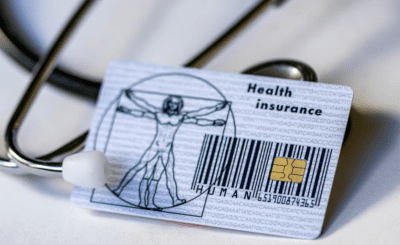You might be surprised to learn that your gut and brain are in constant communication, and the connection between them plays a significant role in your overall emotional well-being. Often referred to as the “second brain,” the gut houses a vast network of neurons and trillions of microbes that don’t just help digest food—they influence how you feel, think, and react. Recent scientific discoveries have highlighted the powerful connection between gut health and mental health, showing that an imbalanced gut can lead to mood swings, anxiety, and even depression. Understanding the gut-brain axis opens new doors to improving your mental clarity and emotional stability simply by supporting digestive health.
The Gut-Brain Axis Explained
The gut-brain axis is the communication network that links your gastrointestinal system to your central nervous system. This connection allows signals to travel back and forth between the brain and the gut via the vagus nerve and various chemical messengers, including neurotransmitters like serotonin and dopamine. Interestingly, about 90% of the body’s serotonin—a neurotransmitter that helps regulate mood—is produced in the gut. This means that the state of your digestive system can have a direct impact on your emotional state and cognitive function.
How Gut Microbes Influence Mood

Your gut is home to trillions of bacteria, both beneficial and potentially harmful. When balanced, these microbes help regulate inflammation, support digestion, and maintain hormone levels. However, when the gut microbiome becomes imbalanced—a condition known as dysbiosis—it can lead to inflammation and chemical imbalances that negatively affect brain function. Studies have shown that individuals with poor gut health often report higher levels of stress, anxiety, and depressive symptoms. On the other hand, nurturing your gut with a diet rich in fiber, fermented foods, and probiotics can improve microbial balance and support mental well-being.
The Role of Diet in Emotional Wellness
What you eat can significantly affect your gut health and, by extension, your mood. Diets high in processed foods, sugars, and unhealthy fats have been linked to gut inflammation and reduced microbial diversity. Conversely, diets rich in fruits, vegetables, whole grains, and fermented foods like yogurt, kefir, kimchi, and sauerkraut can promote a healthier gut environment. Incorporating these foods into your daily routine not only improves digestion but also supports neurotransmitter production and helps regulate stress responses.
Lifestyle Habits That Support Gut and Mental Health

Beyond diet, other lifestyle factors also play a role in the gut-brain connection. Regular physical activity, adequate sleep, stress management, and hydration all contribute to a balanced gut. Exercise in particular has been shown to positively affect the composition of gut bacteria, while chronic stress can impair digestion and trigger gut inflammation. Making small adjustments in your daily habits can lead to big improvements in how you feel both physically and emotionally.
The link between gut health and mood is more than just a theory—it’s a proven, complex relationship that continues to gain attention in the world of science and wellness. By paying closer attention to your digestive system through mindful eating and healthy lifestyle choices, you can positively influence your emotional well-being. A happy gut may just be the key to a happier, more balanced you.






